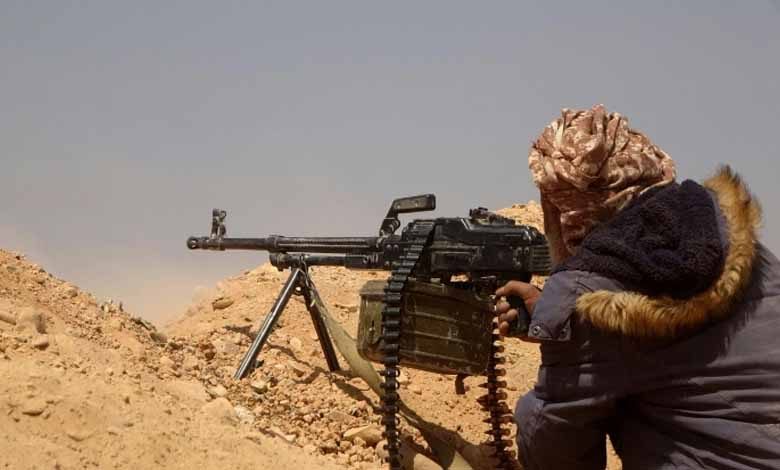Houthi militia attack on Marib threatens humanitarian disaster

The population of Yemen & apos Marib province, estimated to be 2 million, is preparing for the worst scenario, with mass exoduses caused by the escalation and siege of the Iranian – backed Houthi terrorist militia, threatening to exacerbate the world’s worst humanitarian crisis and undermining the peace process, according to observers.
It is an oil-rich desert area, some 120 kilometres east of the capital, Sana’a, and was home to some 400,000 people before the war. However, because of the fighting in several Yemeni areas since 2015, their population has jumped, according to local data, to about 2.7 million because of the massive exodus, as it was perceived as a safe haven for those fleeing fighting elsewhere in the country.
Marib has been the subject of sporadic Houthi attacks over the past year, but the renewed attack since last month has quickly turned into one of the most fierce battles in the ongoing war in seven years.
Ballistic attacks
According to a Yemeni government statement, Marib suffered about 25 ballistic missile attacks last February, which resulted in hundreds of civilian deaths and injuries. The ground attack caused a wave of displacement of more than 15,000 displaced persons recently from displacement camps.
The Sky News Arabia website reported from Yemeni sources in Marib that five camps were closed during the month because of the Houthi attacks, fearing for the lives of camp residents. They were transferred to other areas far away from the clashes, and that Marib has 138 refugee camps.
The sources added that the Houthi attack will increase the pressure on refugee camps, which are already suffering from lack of poor services.
The sources also said the attack on Marib led to large-scale commercial congestion, with the partial stop of cooking gas trucks and the accumulation of dozens of trucks along transport lines, especially at the eastern ports of the province. This forced Yemenis to use alternative, rough and dangerous secondary roads, which created a major crisis in commercial and transportation activity in the province and elsewhere.
The battles have caused a worsening of living conditions, with prices for food and consumer goods increasing exponentially, reaching 400% for most food and construction materials.
Human shields
The executive unit of the administration of the displaced persons camps in Yemen accused the Houthi rebel militia of using hundreds of families in the camps of Displaced in western Marib as human shields.
The unit has issued urgent appeals to the UN and the international community to put pressure on Houthis to stop their attacks on Marib, and to target the displaced and prevent them from entering new stages of displacement, said Najib Al-Saadi, head of the executive unit at the refugee camps administration.
“We called on all international and relief organizations working in Yemen to act urgently to provide relief to the displaced and to alleviate their suffering,” Al-Saadi said in a press statement. “We also called on the Houthis to respect international humanitarian law, stop targeting civilians and displaced persons and open safe corridors to facilitate the delivery of humanitarian aid to them”.
He said the Houthi militia directly targeted the camps of “Thanna al-Sawabin” and “Thanna Al-Hayyal” in the Srouah district with heavy artillery and mortars, forcing 450 families to flee to Rawah Kindergarten.
Indiscriminate bombing
Yemeni political analyst Mahmoud Al-Taher said residents in Marib are extremely concerned about the daily shelling by Houthi militia on refugee camps and residential neighborhoods, which seriously threaten their lives.
Al-Taher told Sky News Arabia that the Houthis stormed a refugee camp near the Marib Dam, set up guns inside tents, and took women and children as human shields, pushing the displaced man into the front lines to use them as cover.He pointed out that the indiscriminate shelling by the Houthi militia caused a second displacement of the displaced, to move away from the ongoing fighting fronts.
The indiscriminate bombardment by Houthi militias has caused the displaced to flee again to the fighting fronts, he said.
Al-Taher criticized the international position on the attack on Marib, saying that the international community is trying to “beautify” the Houthis in order to enter into peace negotiations that they will not accept at all, and that there is a double standard in this rain.
The Yemeni political analyst called on the legitimate government to reveal the violations committed by militias to the international community in order to increase the pressure on the Houthis. This is something that the Ministry of Human Rights must undertake, but what is happening so far is not as hoped.
The UN estimates that 16% of the population, or 5 million since 2015, has been displaced from their homes because of the war in Yemen, while nearly 74% of the displaced live in rented houses outside host sites.
UN organizations have recently issued warnings of deteriorating living conditions, lack of services and the disastrous increase in hunger across Yemen.
80% of the population, estimated at 30 million, is dependent on aid and support, in the world’s worst humanitarian crisis, according to the UN.












